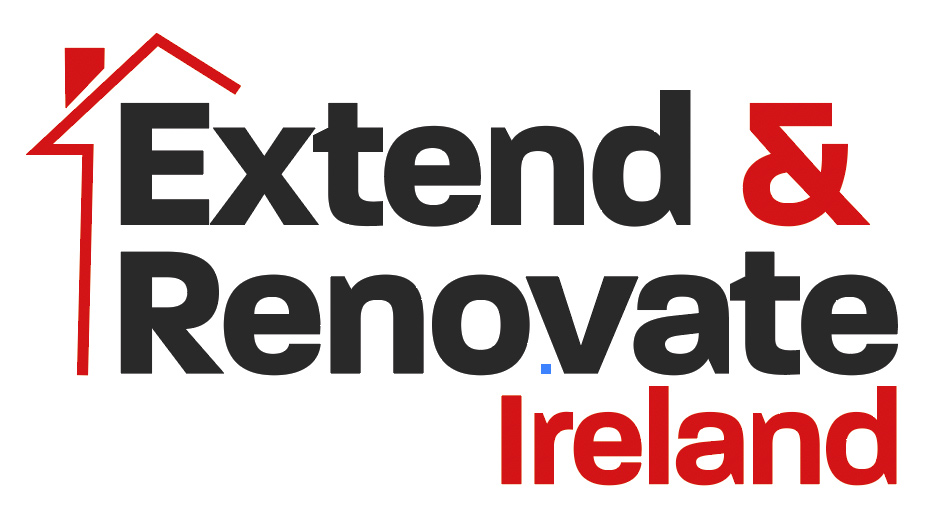Solar energy has emerged as an increasingly attractive option for homeowners across the globe, and Ireland is no exception. With falling prices of photovoltaic (PV) modules and abundant solar radiation, investing in solar panels has become a viable option for many.
Solar Panels: Harnessing the Power of the Sun
Solar panels, often referred to as photovoltaic panels, are devices that convert sunlight into electricity. They are designed to capture solar radiation and generate clean, renewable energy for various applications, including powering your home. Additionally, there are solar thermal panels that produce hot water for household use. Here are the two primary types of solar panels available:
Solar Thermal: Hot Water Panels
Solar thermal panels are specifically designed to generate hot water using the sun’s energy. They are an eco-friendly alternative to conventional water heating systems. However, it’s important to note that solar thermal panels may not provide hot water year-round and may require a backup system, typically in the form of a boiler, during colder months. The efficiency of solar thermal panels can vary depending on factors such as the number of panels and the size of the hot water cylinder.

Government Grants for Solar Thermal Panels
For homeowners in the Republic of Ireland (ROI), government grants are available to support the installation of solar thermal panels. These grants can significantly reduce the upfront cost of adopting this eco-friendly technology. ROI also offers grants for solar panels in existing homes built before 2006, contributing €1,200 towards the cost. By installing solar thermal panels, you can expect yearly savings compared to an oil boiler-only setup, ranging from €300 to €800.
Ground vs. Roof Mounted Solar Thermal Panels
In ROI, both roof-mounted and ground-based solar thermal panels are exempt from certain regulations, but there are caveats. Roof-mounted systems up to 12 square meters do not require planning permission, provided they meet specific criteria, such as being more than 50cm from any roof edge. In Northern Ireland (NI), roof-mounted solar systems do not need planning permission, as long as they adhere to basic criteria, such as not exceeding the roof’s boundary.
Choosing the right size of the hot water cylinder is crucial, as it impacts both the amount of hot water available and the time it takes to reach the desired temperature. Proper system design and regular maintenance ensure the longevity and efficiency of solar thermal panels.
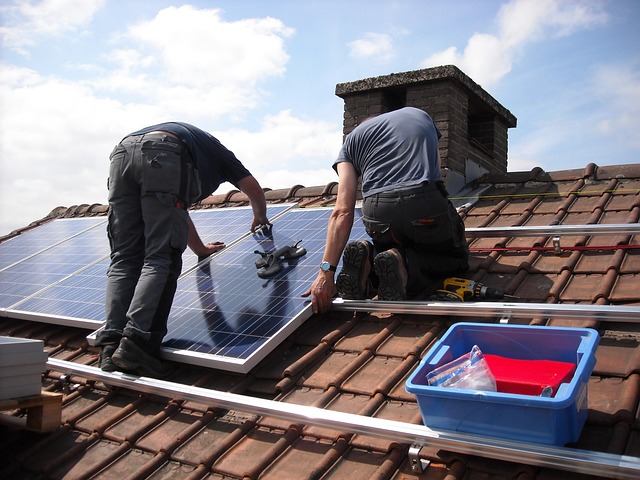
Tube vs. Flat Solar Panels
There are two primary types of solar thermal collectors: vacuum tube collectors and flat plate collectors. Vacuum tube collectors consist of rows of tubes that transfer heat to a manifold where a transfer fluid flows. These collectors are lighter and easier to retrofit but cannot be integrated into the roof. Flat plate collectors consist of a large metal sheet with a selective coating for maximum heat absorption. They can be integrated into the roof and offer versatility in design. Both types have their advantages, with vacuum tubes performing better in adverse weather conditions.
The Longevity of Solar Thermal Panels
With proper design and installation, solar thermal panels can provide many years of trouble-free service. Vacuum tubes may require flask replacement after about 20 years, while flat plate panels typically have a longer lifespan. To extend their life, precautions should be taken to prevent overheating by providing adequate heat dumping mechanisms.
Sizing Solar Thermal Panels
The size of your solar thermal panel system depends on factors such as household usage, collector efficiency, orientation, and geographical location. On average, a four-person household requires three to five square meters of net solar collector area. The optimum pitch for solar panels falls between 30 and 50 degrees, with an orientation between southeast and southwest yielding the best results. Shading and proximity to trees should be avoided to maximize solar panel efficiency.
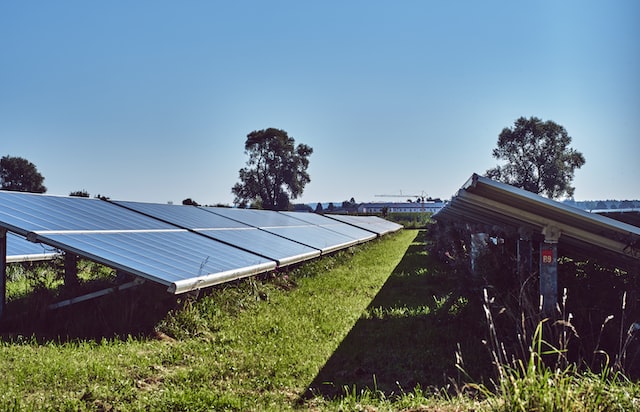
Maintenance of Solar Thermal Panels
Unlike oil or gas boilers, solar water heating systems do not require annual servicing. However, periodic maintenance is essential. Flushing the system with clean water and renewing the anti-freeze every three years, checking for leaks, keeping the collector glazing clean, and monitoring the circulating pump’s performance are recommended practices to ensure the system’s longevity.
Photovoltaic (PV) Solar Panels
Photovoltaic (PV) solar panels generate electricity directly from sunlight. They offer a predictable and consistent source of energy, making them an attractive option for homeowners looking to reduce their carbon footprint and energy bills. PV panels do not require direct sunlight to function efficiently and can generate electricity even on cloudy days.
Maximising PV Efficiency
For optimal electricity generation, south-facing roofs receive the highest amount of solar radiation throughout the year. While roofs oriented southeast or southwest can also produce significant yields, a due south orientation is ideal. In Ireland, residential PV installations typically range from 1.8 kWp to 4 kWp, with ROI offering attractive incentives to make solar panel installations more affordable.
Impact on Your Energy Rating
Installing PV panels can significantly impact your home’s energy rating. A 1.4 to 1.8 kWp installation can contribute approximately 1,400 kWh per year, which can help you improve your Building Energy Rating (BER). Transitioning from an A3 to an A2 rating is within reach for many.
Low Maintenance and Long Lifespan
One of the key advantages of PV panels is their low maintenance requirements. They are self-cleaning on roofs with a pitch greater than 5 degrees and have a lifespan of around 25 years. Inverters, which are used to convert DC electricity to AC electricity, may need replacement after about 15 years.
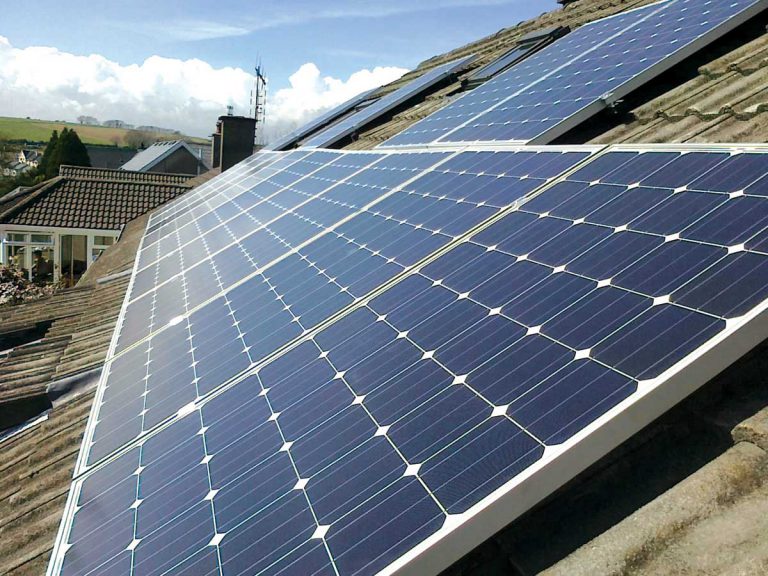
The Mechanics of PV Solar Panels
PV systems consist of solar panels (modules), inverters, a meter, and your existing consumer unit. Solar panels convert sunlight into direct current (DC) electricity, which is then converted into alternating current (AC) electricity by the inverter. AC electricity is compatible with the main electricity grid and can be used to power your home. Any excess electricity generated can be exported to the grid, stored in batteries, or diverted to your hot water cylinder.
Grid Connection in Ireland
The process of connecting your PV system to the grid differs between ROI and NI. In NI, for typical residential properties with a single-phase electrical supply, smaller arrays (less than 3.68 kWp) are considered micro-generation and do not require a grid connection application. The installation process is simplified under a ‘fit & inform’ scheme. However, for larger installations, a grid connection application and fee may apply.
The situation is more complex in ROI. To export the electricity you generate to the grid, you must apply to ESB Networks for permission to connect a micro-generator (less than 6 kW single-phase, less than 11 kW three-phase). This involves several steps, including fitting an import/export meter and providing electrical certification. It’s important to note that demand from electricity companies for purchasing surplus electricity is limited in ROI, so carefully consider your options before investing in an import/export meter.
Battery Storage: A Promising Option
Battery storage is an intriguing option for homeowners with PV panels. While off-grid homes have used battery storage for years, recent developments have made it more accessible for those connected to the grid. Batteries can store excess electricity generated by your PV system for use during periods of low solar output or high electricity demand.
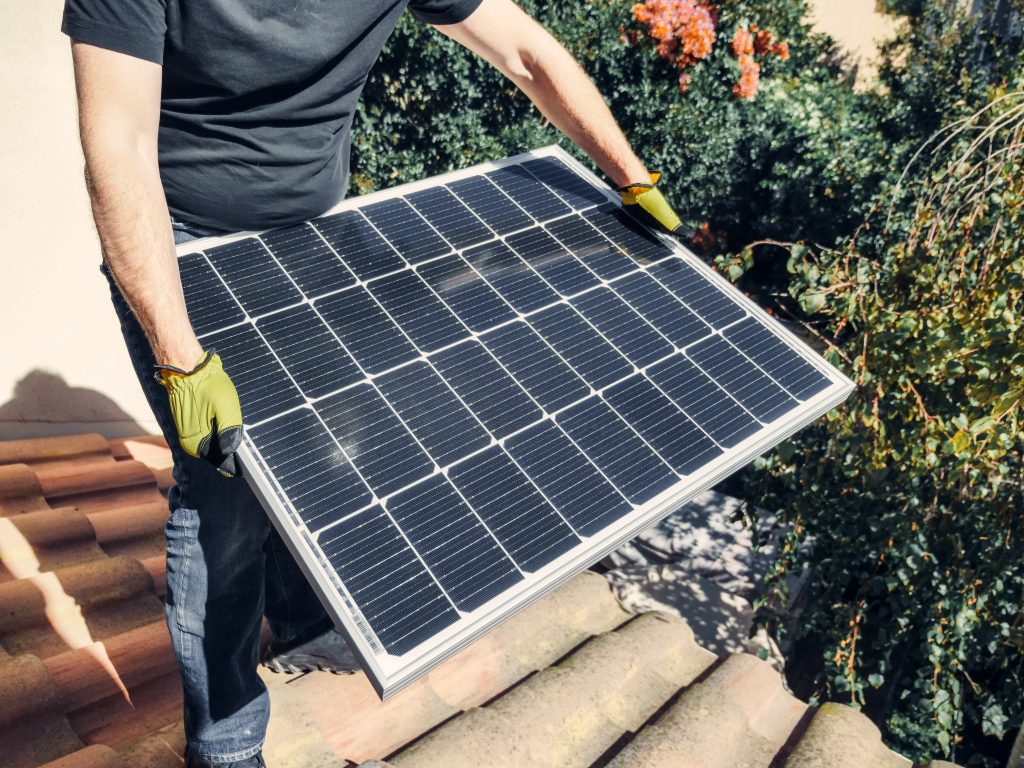
Types of Batteries
There are two main types of batteries used for residential solar PV systems: AC batteries and DC batteries. AC batteries are typically retrofitted and installed between the renewable system and the electricity meter. They require an additional inverter to convert DC output to AC. DC batteries, on the other hand, are integrated during the initial installation and do not require an extra inverter.
Costs and Benefits of Batteries
The cost of battery storage varies depending on factors such as storage capacity and technology type, with lithium-ion batteries being the dominant choice. While batteries can be a significant investment, they offer the potential to offset electricity costs and enhance your energy independence.
Alternative Uses of Battery Storage
Besides storing excess electricity, batteries can serve other purposes. Some homeowners connect their electric vehicle (EV) batteries to their home’s electricity supply. This allows them to charge the EV battery overnight when electricity rates are lower and use the stored energy during peak hours. Additionally, batteries can provide backup power in the event of a grid outage, although not all systems offer this feature.
The Future of Solar Energy
The adoption of solar panels and battery storage is on the rise, driven by falling costs and increasing awareness of environmental concerns. However, it’s essential to keep an eye on emerging technologies that could further revolutionise the energy landscape.
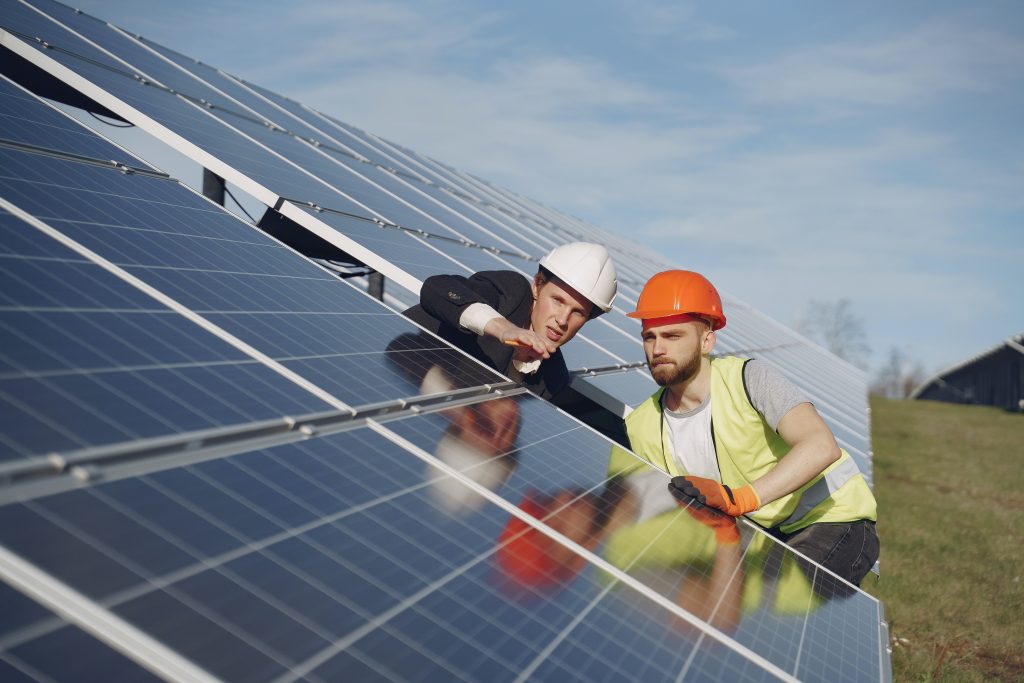
Hydrogen Fuel Cells
One promising technology for storing and transporting renewable energy is hydrogen fuel cells. These cells have the potential to provide an efficient and scalable solution for energy storage and transportation. As research and development continue in this field, hydrogen fuel cells may become a viable option for homeowners in the future.
The decision to invest in solar panels depends on various factors, including your location, energy consumption, budget, and environmental goals. Solar thermal panels offer a reliable source of hot water but may require a backup system in colder months. Photovoltaic panels provide a consistent source of electricity, reduce energy bills, and can improve your home’s energy rating.
Government grants and incentives in ROI and NI can significantly reduce the upfront cost of solar panel installations. Additionally, the option of battery storage provides homeowners with more control over their energy usage and offers the potential for increased energy independence.
As technology continues to advance, the future of solar energy looks promising. Whether you choose solar thermal or photovoltaic panels, or explore the possibilities of battery storage, you have the opportunity to contribute to a cleaner, more sustainable future while potentially saving on energy costs. Ultimately, the decision to invest in solar panels in Ireland should align with your specific needs and long-term sustainability goals.
